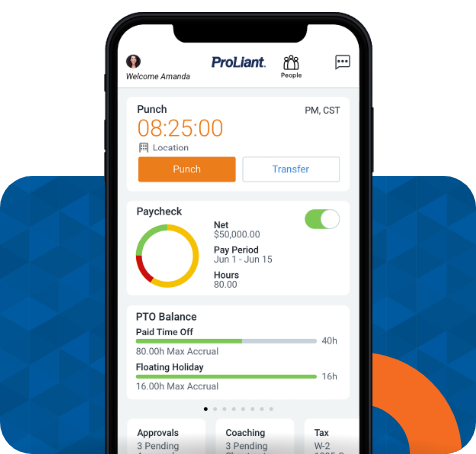Because there’s not enough going on at the end of the year for HR…
Under emergency authority established by Congress, OSHA has released the vaccination requirements for employees in the private sector. The new requirements were set to go into full effect on January 4th, 2022, but the mandate is currently under a temporary stay issued by the Fifth Circuit Court of Appeals. However, employers should make plans for compliance in case the court's stay is lifted.
According to CNBC, “The Labor Department’s top lawyer, Seema Nanda, said that the Biden administration is ‘fully prepared to defend this standard in court.’ [and the law] ‘explicitly gives OSHA the authority to act quickly in an emergency where the agency finds that workers are subjected to a grave danger and a new standard is necessary to protect them.’”
The new vaccine and testing requirements apply to private sector companies that employ 100 or more employees and “supersede state or local requirements that ban or limit an employer’s authority to require vaccination, face-covering, or testing.”
These requirements exclude those employers who are subject to the federal vaccine mandate for federal contractors and the Center for Medicare Services’ mandate “requiring COVID-19 vaccination of eligible staff at health care facilities that participate in the Medicare and Medicaid programs.”
Applicable private sector companies must ensure each employee that visits an enclosed workplace around other people receives an approved COVID-19 vaccination or has regular testing and wears a mask in the workplace.
Establishing Vaccination Status for Employees
Employers with over 100 employees must gather information regarding the vaccination status of each employee. Acceptable proof of vaccination includes:
- Copy of COVID-19 vaccination cards
- Immunization records
- Medical records that document the vaccination
Employers allowing employees to opt for testing and masks must procure regular COVID-19 test results from those who choose this option. If an employee is in the office at least once per week, they must provide a negative test result every week via approved testing methods. No self-administered tests will be accepted unless the employer or telehealth provider observes the test process.
Notice to Employees About Vaccine Requirements
Employers are required to notify employees of the new requirements by December 5, 2021. The notification should include:
- Policies and procedures for implementation (mandate or employee option)
- Information about vaccine efficacy and safety
- Benefits of being vaccinated
- Anti-retaliation protections under the Occupational Safety and Health Act ("OSH Act")
- Prohibition on providing false statements or documentation under the OSH Act
The document from the CDC titled “Key Things to Know About COVID-19 Vaccines” contains information about vaccine safety and benefits.
Requirements for Vaccination Record Keeping
Starting December 5, 2021, employers must create and maintain vaccination records and testing results of their employees, including:
- A roster of each employee’s vaccination status
- Proof of vaccination
- Each test result for employees who aren’t fully vaccinated
Required Paid Time Off for Vaccinations
Starting December 5, 2021, employers must allow employees an appropriate amount of time, up to 4 hours of paid time, to get primary vaccination doses. Employees must also be allowed time off and paid sick leave to recover from side effects caused by vaccination.
Employees Exempt From the Vaccine and Mask Requirements
Employees who work from home or utilize workplaces where no other people are present are exempt from the vaccine and mask requirements. This is because OSHA has established that these employees are not at significant risk of occupational COVID-19 exposure.
Employees who work exclusively outdoors are exempt from the vaccine and mask requirements laid out by OSHA. According to OSHA, people who work outside are at a much lower risk of coming into contact with the coronavirus at work. The organization concluded that it did not have enough data to establish a danger for activities performed in outdoor settings. For those who work outdoors to qualify for the exemption, employees must:
- Work exclusively outside and not in partially constructed facilities
- Work outdoors for the duration of every workday (excluding brief visits to bathroom facilities or administrative offices)
- Not share space in a vehicle with others
Next Steps for Employers
The ETS is already being challenged in court, but employers should make plans for compliance regardless. Employers can choose to put a mandatory vaccination policy in place or allow employees the choice between vaccination or regular testing. Either way, employers should drat their vaccination policy and create the necessary records before December 5, 2021.
More Information and Resources
OSHA COVID-19 Mandatory Vaccination Policy Template
Protecting Workers: Guidance on Mitigating and Preventing the Spread of COVID-19 in the Workplace
Summary: COVID-19 Vaccination and Testing ETS
OSHA releases sample policies for vaccination ETS compliance
This information is meant as an overview to inform and notify readers that there are new requirements laid out by OSHA’s ETS and is in no way meant as legal advice or a complete account of the requirements. Visit osha.gov and consult your legal team to ensure full compliance.




No Comments Yet
Let us know what you think